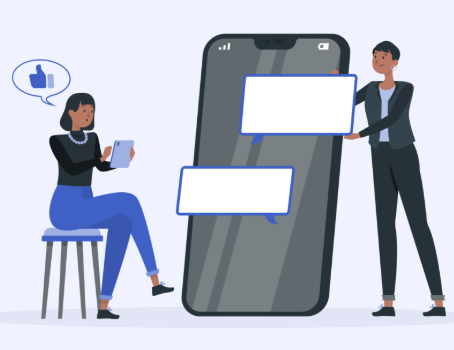
Building a stellar chat support team is key to ensuring excellent customer experiences and business success. With more customers preferring chat support, having a well-trained team can significantly boost efficiency and foster loyalty. Let’s dive into the essential elements of training chat agents and optimizing their performance.
Why Chat Agent Training Matters
In today’s customer service landscape, chat support is more popular than ever. Research shows that over half of customers prefer using chat for support. Training chat agents not only ensures that they respond quickly and effectively, but it also helps in building strong customer relationships, boosting sales, and increasing customer retention. Proper training is an investment that pays off in the form of better service and stronger customer loyalty.
Essential Skills for Chat Agents
To succeed in a chat support role, agents must possess a unique blend of interpersonal and technical skills. These are the key skills your agents need:
- Empathy: Understanding customer frustrations and offering reassurance is crucial. Agents should be able to connect emotionally and offer support that feels genuine.
- Clear Writing: Writing concise, clear, and professional messages is essential. Avoiding jargon and keeping communication simple ensures that customers understand the responses without confusion.
- Multitasking: In a busy chat environment, agents need to manage multiple conversations at once while maintaining quality.
- Problem-Solving: Agents must think on their feet and provide quick solutions to issues, ensuring customers leave satisfied.
- Product Knowledge: Agents must know the ins and outs of your products and services to provide accurate and helpful information.
Training Chat Agents Step-by-Step
Creating an effective training program for chat agents involves a structured approach. Here’s how to break it down:
First Week: The Foundation
During the initial week, focus on helping new hires understand the company culture and systems:
- Company Vision: Ensure they understand your company’s values and how they contribute to the bigger picture.
- Brand Training: Teach agents about the tone and personality of your brand. Each interaction should reflect your company’s ethos.
- System Familiarization: Provide hands-on training with your chat software and CRM system. Familiarity with tools increases agent confidence and efficiency.
- Greeting Techniques: Work on crafting warm and friendly greetings that set the tone for positive interactions.
- Q&A Sessions: Create an open environment where agents can ask questions and clarify any doubts.
Ongoing Training: Building Advanced Skills
Once your agents have mastered the basics, it’s time to focus on more advanced aspects:
- Product Knowledge: Ensure agents stay updated on product features, common issues, and solutions.
- Communication Skills: Keep refining their writing style and ability to communicate complex ideas simply and effectively.
- Problem-Solving Techniques: Teach them how to troubleshoot problems and handle difficult customers.
- Multitasking and Efficiency: Train agents on managing multiple chats simultaneously without sacrificing quality.
- Advanced Scenarios: Provide challenging customer service situations to help agents think on their feet and prepare for tough conversations.
Setting Clear Performance Goals
Effective training also involves setting clear, measurable goals:
- Response Time: Aim for agents to respond to chats within a few minutes, keeping first response time under 5 minutes.
- Customer Satisfaction: Aim for high customer satisfaction scores, ideally 90% or above.
- Resolution Rate: Encourage first-contact resolution, aiming to solve customer issues in a single interaction.
Advanced Training Techniques
To take your agents’ skills to the next level, consider these advanced methods:
- Role-Playing Exercises: Create mock customer scenarios where agents can practice their responses. This builds empathy and helps agents understand customer perspectives.
- Peer Learning: Set up regular knowledge-sharing sessions where more experienced agents can mentor newer team members.
- Live Support Coaching: Provide real-time feedback during actual chats to help agents refine their skills on the fly.
- Performance Tracking: Use KPIs like customer satisfaction, response times, and resolution rates to assess agent progress and identify areas for improvement.
Key Tools for Chat Agent Success
Equip your team with the right tools to ensure smooth operations:
- Knowledge Base: Create a centralized hub with information on products, common issues, and troubleshooting guides.
- Simulation Software: Use simulation platforms where agents can practice real-world chat scenarios.
- Performance Analytics: Leverage data to monitor agent performance and identify strengths and weaknesses.
Monitoring and Improving Chat Performance
It’s essential to continuously monitor chat performance to ensure your team remains on track:
- Key Metrics: Track key performance indicators (KPIs) such as First Response Time (FRT), Customer Satisfaction (CSAT), and First Contact Resolution (FCR).
- Quality Checks: Regularly review chat transcripts and provide feedback to agents.
- Customer Feedback: Use post-chat surveys to collect direct feedback from customers on their experience.
- Gamification: Introduce friendly competition among agents by tracking performance and rewarding top performers.
Using Customer Feedback for Improvement
Customer feedback is invaluable for refining your chat support strategy. Here’s how to use it effectively:
- Post-Chat Surveys: Keep surveys brief and focused on key areas like satisfaction, issue resolution, and agent performance.
- Follow-Up with Unhappy Customers: Reach out to customers who weren’t satisfied to learn about their concerns and resolve any lingering issues.
- Spot Trends: Identify recurring issues in customer feedback and use that information to adjust training and improve service.
Conclusion
Effective chat support training is crucial for building strong relationships with customers and ensuring that your business runs smoothly. By equipping your team with the right skills, tools, and performance metrics, you can create a customer service experience that is both efficient and empathetic. Regular training, combined with a focus on clear communication and problem-solving, will help you foster a team that consistently delivers excellent support.












